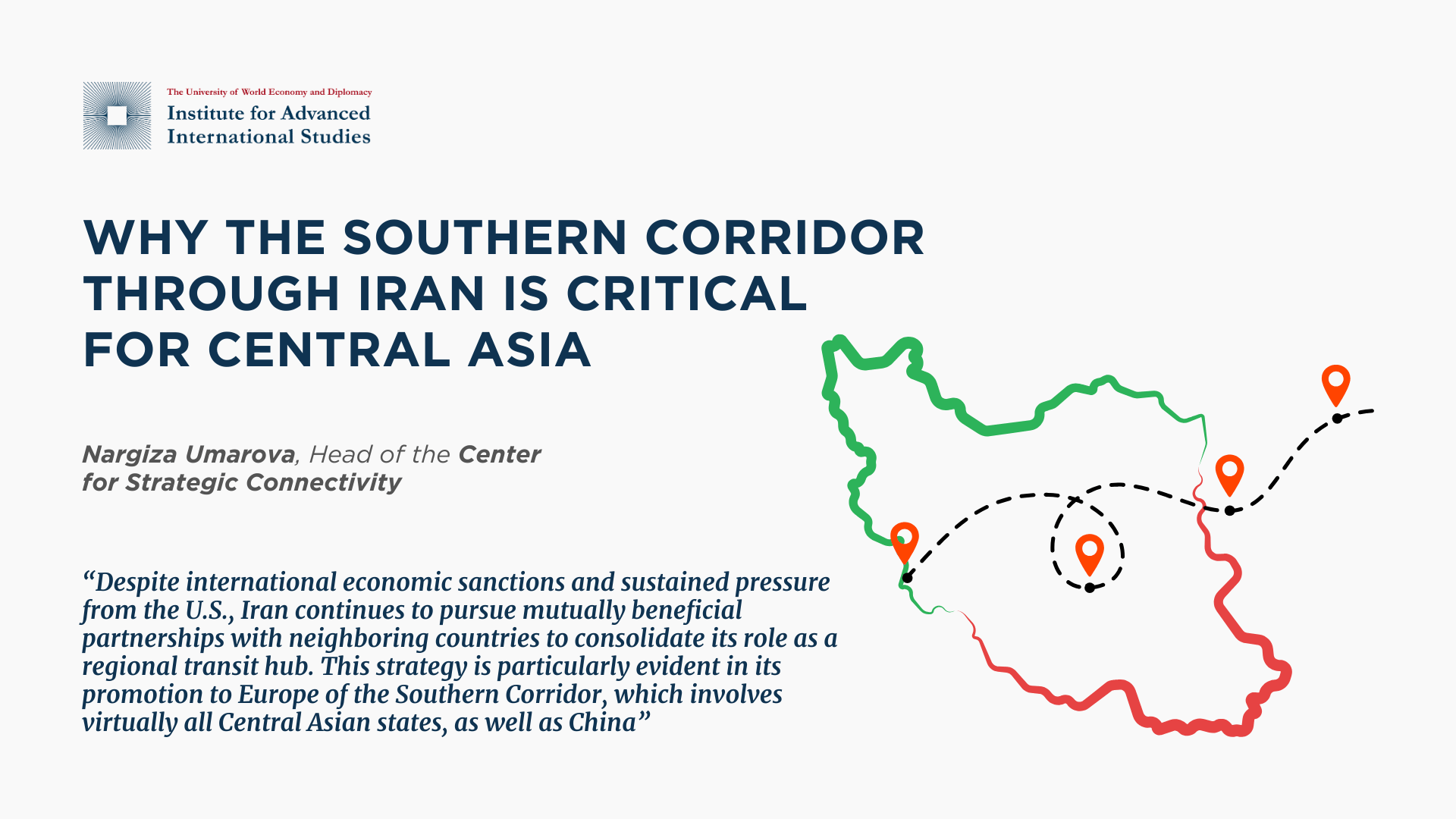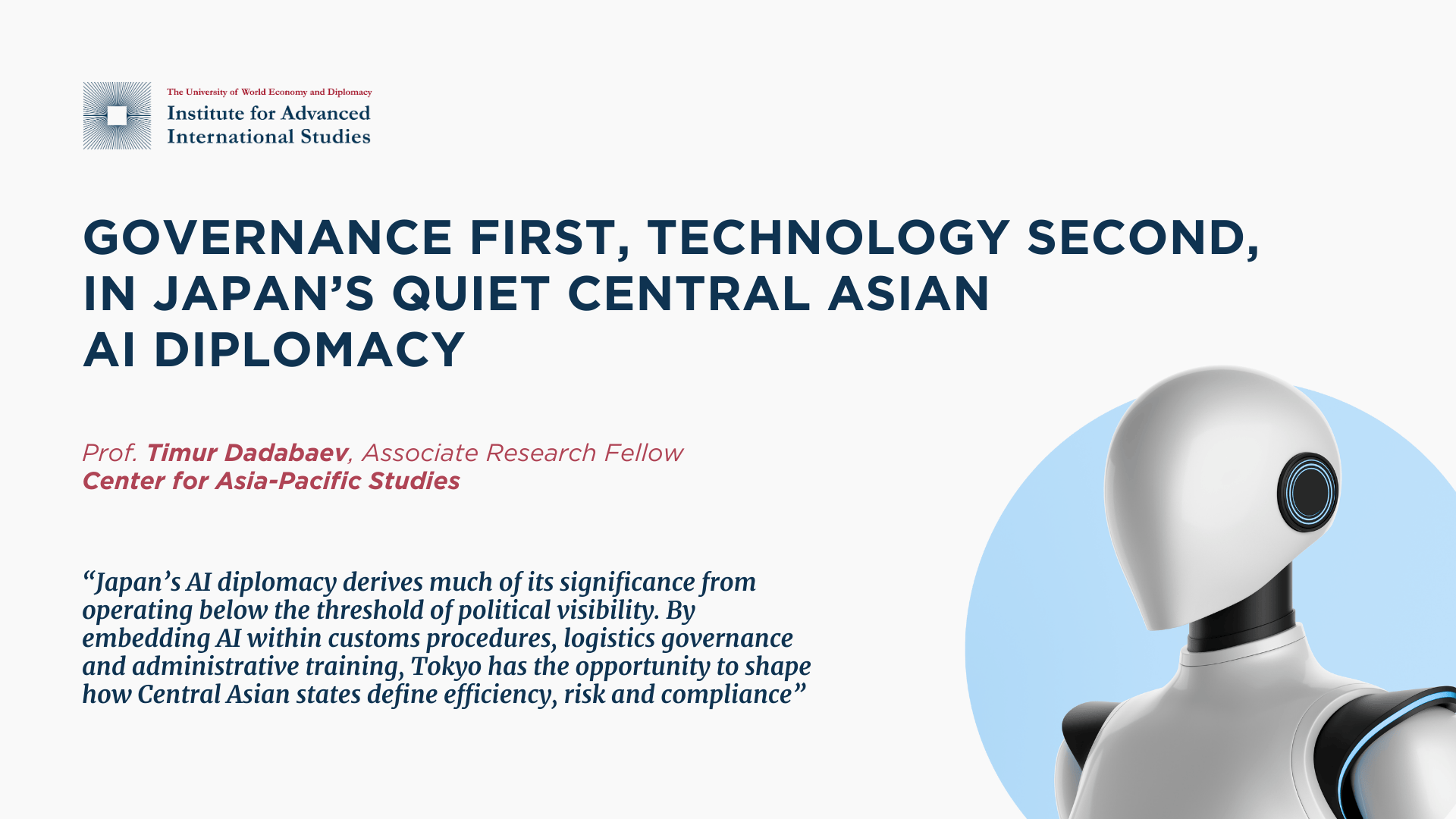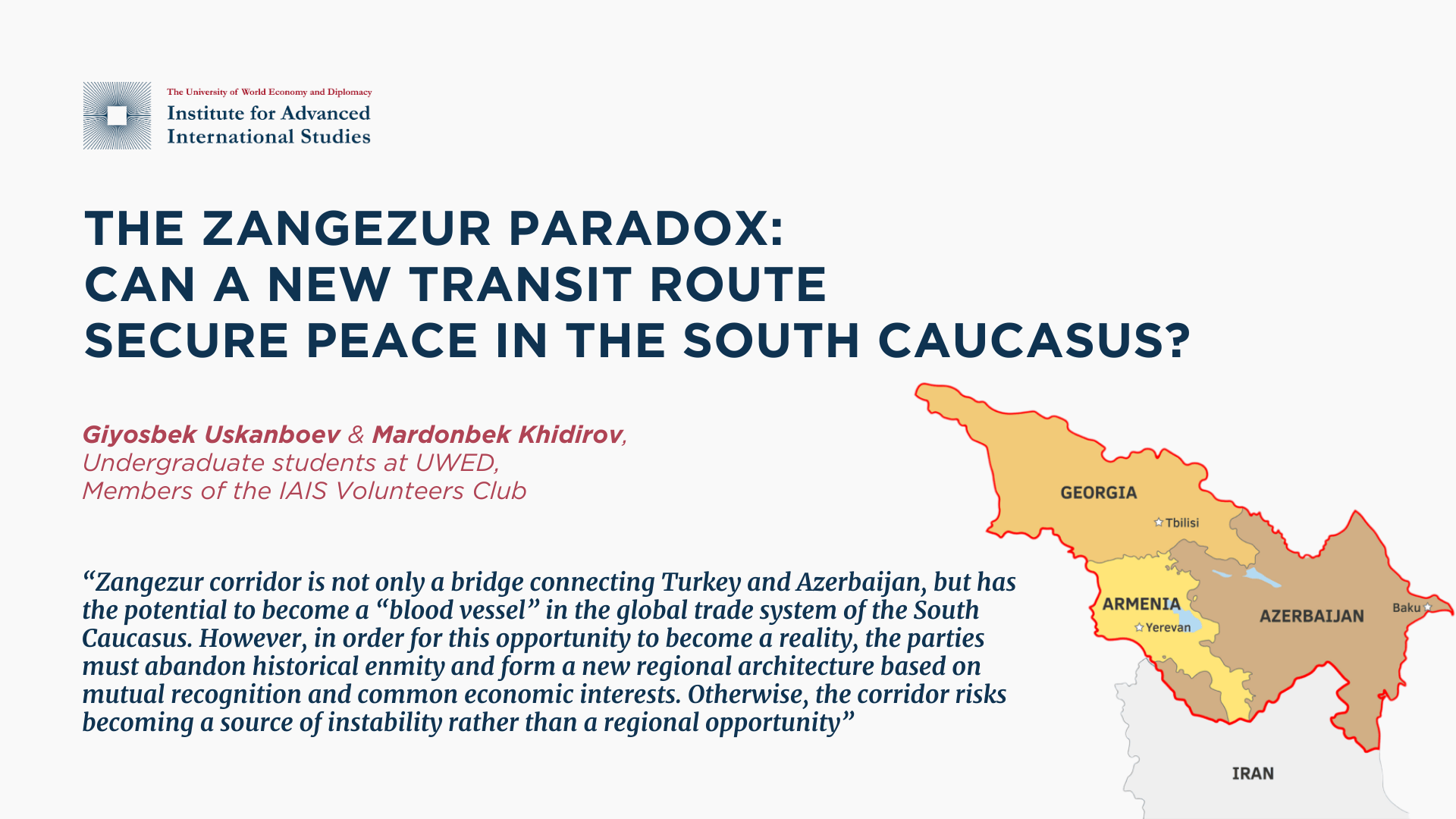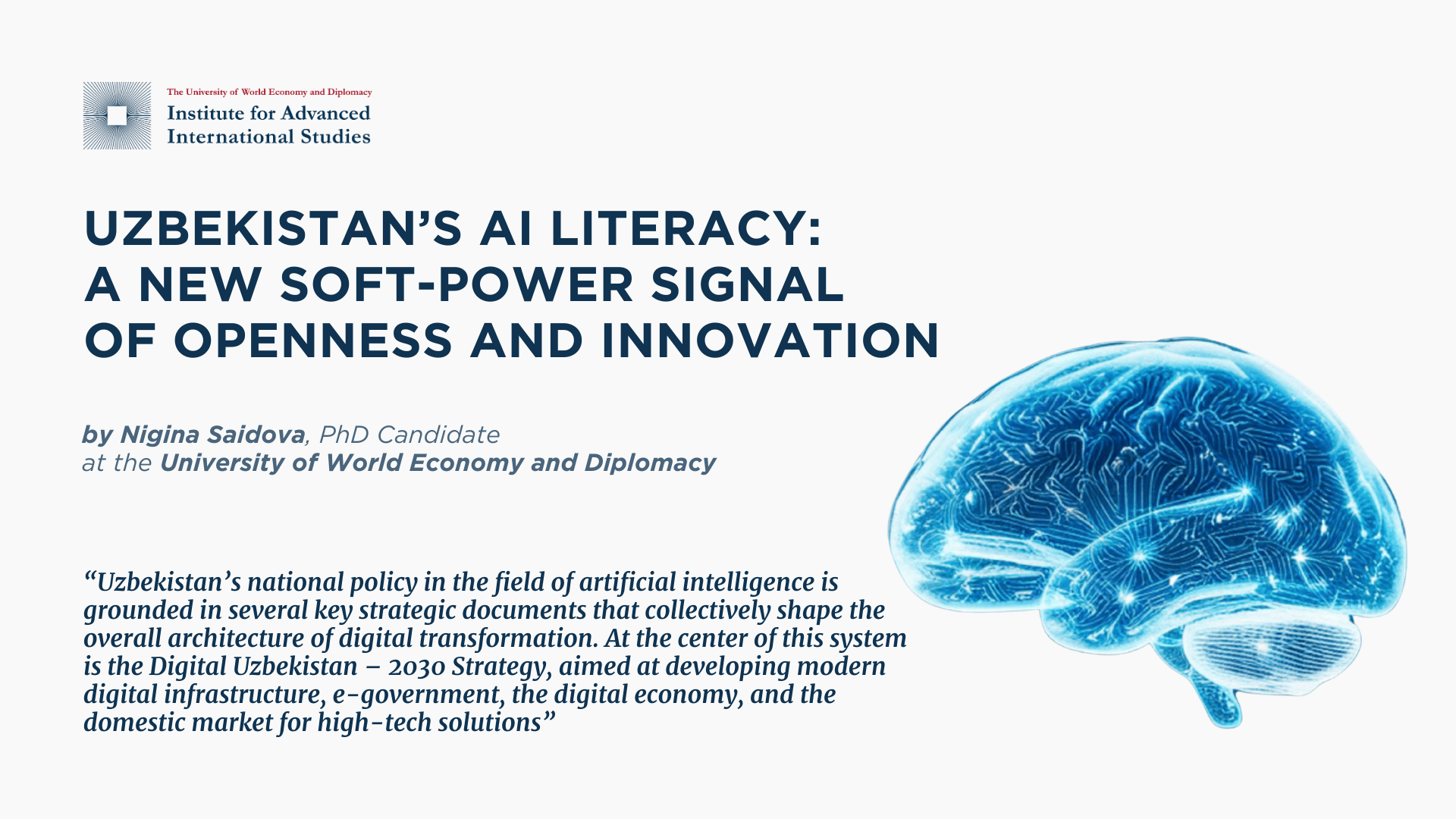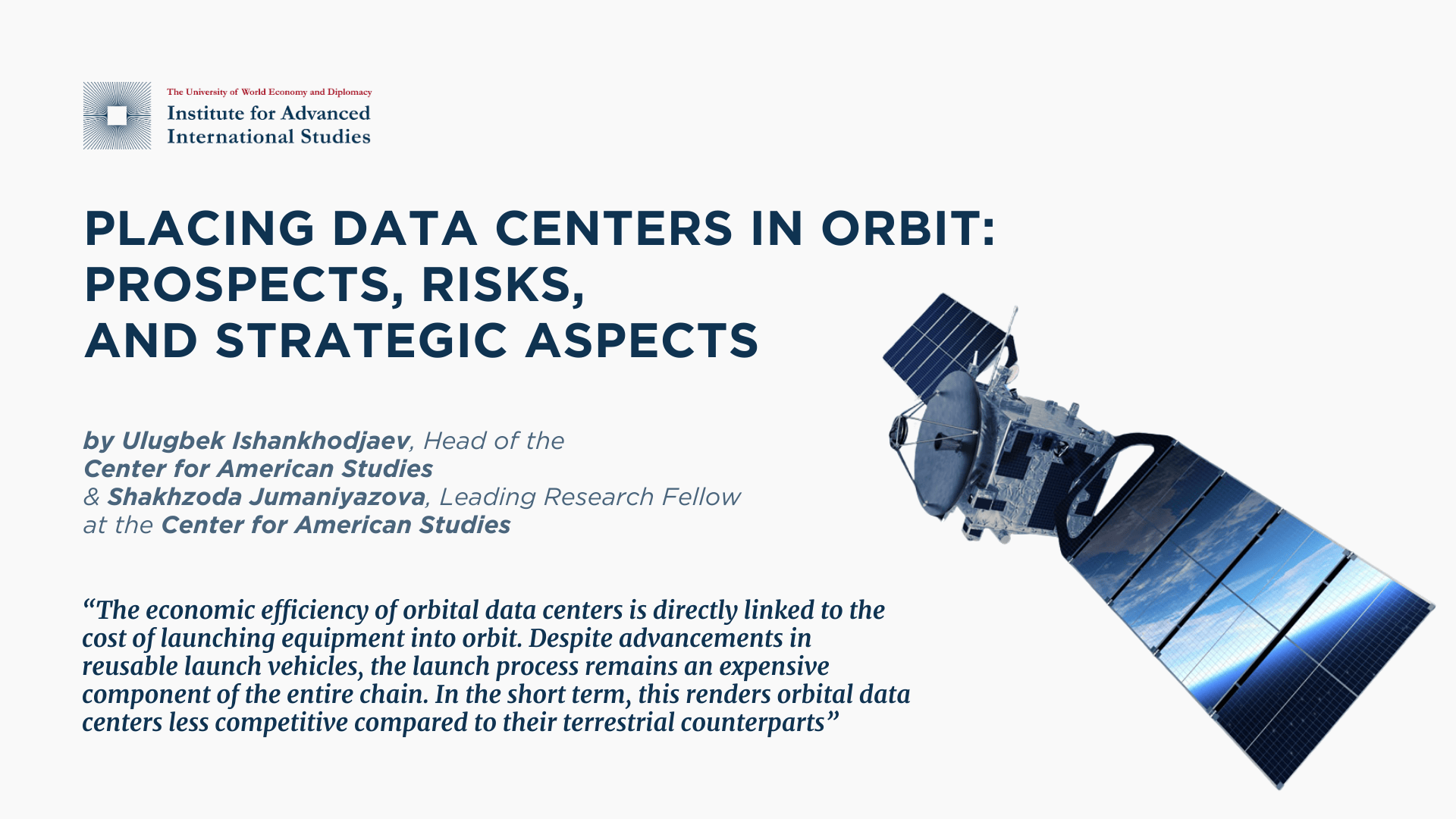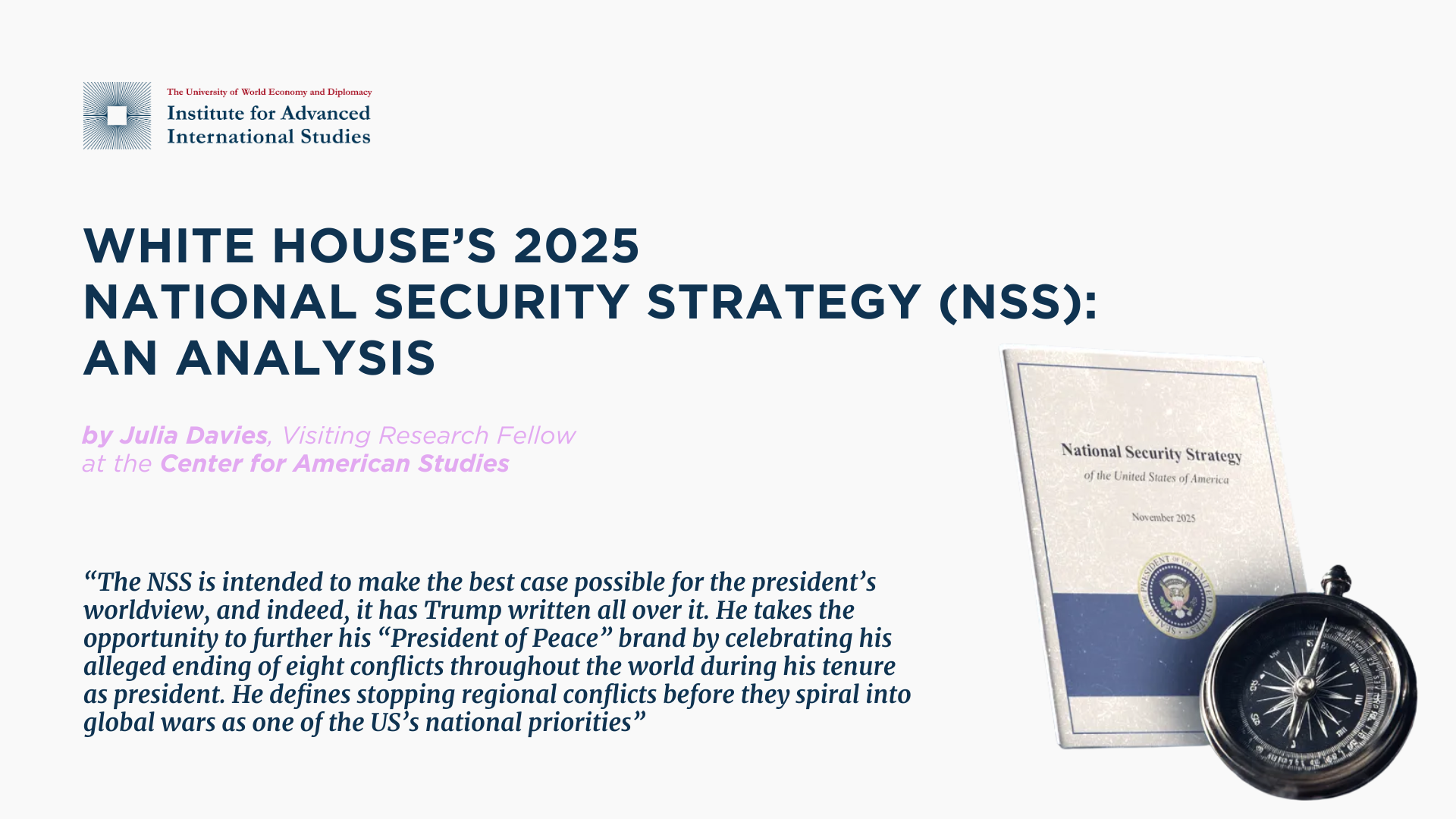The development of digital technologies in the 21st century is accompanied not only by an increase in data volumes, but also by a qualitative complication of data processing processes. Artificial intelligence (AI), big data analysis, and the development of autonomous systems and digital platforms are creating a steady and ever-growing demand for computing power. At the heart of this transformation are data centers, which are becoming critically important infrastructure for the functioning of the modern economy, public administration, and security systems.
At the same time, the ground-based infrastructure of data centers faces systemic constraints. These include overloaded power grids, rising electricity costs, water shortages for cooling, and social and environmental resistance at the local community level. In a number of countries, primarily the United States, there have already been cases of new data center construction being blocked due to concerns about the environment and the load on regional power grids.
Against this backdrop, experts, corporations, and governments are increasingly discussing the idea of placing computing infrastructure outside Earth—in outer space. Orbital data centers are seen as a potential response to the structural limitations of the terrestrial model of digital development and as an element in the formation of a new technological paradigm.
Project initiators and international dynamics. Leading technological powers and major corporations are showing interest in orbital data centers. In the United States, this direction is being actively promoted both by the private sector and within the framework of government strategic discussions. Through Project SunCatcher, Google has announced the possibility of creating satellite computing platforms that use solar energy and autonomous life support systems for equipment.
Entrepreneur Elon Musk links the prospects for orbital computing with the development of reusable rockets and the global Starlink satellite network. In his approach, space infrastructure should become an extension of the Earth's internet and cloud services, but with fundamentally different energy and spatial potential. The startup Starcloud, in partnership with NVIDIA, is developing specialized satellites with computing modules for AI tasks, focused on processing data directly in orbit.
The European Union is taking a more cautious stance for now, focusing on research programs such as the ASCEND project, which aims to assess the technical feasibility and economic implications of orbital data centers. At the same time, China is demonstrating a more decisive approach. The launch of satellites as part of the Three-Body Computing Constellation (Xing Shidai / 星时代) program demonstrates Beijing's desire to take a leading position in the emerging field of space computing technologies.
Technological features and limitations. From a technical point of view, orbital data centers have a number of fundamental advantages. The main one is access to solar energy outside the Earth's atmosphere. The intensity of solar radiation in space is higher than on the planet's surface, and the absence of weather factors allows for more stable energy generation. Placement in certain types of orbits minimizes periods of shading, which makes it possible for equipment to operate almost continuously.
However, the space environment also imposes serious limitations. One of the key problems remains the cooling of servers. In a vacuum, there is no convective heat exchange, and heat can only be removed by radiation. This requires the use of massive radiators and complicates the architecture of orbital platforms. In addition, such designs increase the mass of the devices and, accordingly, the cost of their launch. Another critical factor is cosmic radiation. The impact of high-energy particles can lead to microchip malfunctions and reduced computing reliability. Special materials, shielding, and software error correction methods are used to protect equipment, but all these measures increase the cost and complexity of the systems.
Economic logic and investment models. The economic efficiency of orbital data centers is directly linked to the cost of launching equipment into orbit. Despite advancements in reusable launch vehicles, the launch process remains an expensive component of the entire chain. In the short term, this renders orbital data centers less competitive compared to their terrestrial counterparts.
Communication between orbital data centers and Earth is a separate challenge. High-speed channels, including laser communication systems, are required to transmit large amounts of data. Ensuring the stability of such channels, their redundancy, and protection against failures are critical tasks in the design of orbital computing systems.
Nevertheless, significant economic benefits are possible in the long term. The main source of potential savings is energy. In ground-based data centers, a significant portion of operating costs is accounted for by electricity and cooling. In space, once the infrastructure is deployed, solar energy becomes virtually free, which can radically reduce the cost of computing.
In addition, orbital data centers can offer unique services, such as processing Earth remote sensing data directly in orbit or providing computing resources for space missions. These niches have no direct analogues in ground-based infrastructure and may justify higher initial costs.
Environmental aspects. From an environmental point of view, the idea of moving data centers into space is ambiguous. On the one hand, it reduces the burden on terrestrial ecosystems, decreases water consumption, and reduces the need to build new power plants. This is especially relevant for regions with scarce resources. The relevance of this argument is confirmed by the situation in the United States, where the rapid expansion of AI infrastructure is already having a noticeable impact on aquatic ecosystems. AI data centers in the US threaten to dry up the Great Lakes. One large center consumes as much water as hundreds of thousands of people. This has already led to falling water levels in the Great Lakes, water supply problems, and threats to agriculture. Companies that operate data centers often conceal the real data on resource consumption.
On the other hand, rocket launches are accompanied by significant emissions of greenhouse gases and other substances that affect the atmosphere. The mass deployment of orbital infrastructure could lead to an increase in the carbon footprint if more environmentally friendly launch technologies are not introduced. An additional systemic risk is the increase in space debris. The increase in the number of satellites increases the risk of collisions and threatens the sustainability of near-Earth space as an environment for human activity.
Geopolitical and legal implications. Orbital data centers have a pronounced geopolitical dimension. Control over computing infrastructure in space can provide states with significant advantages in data processing, intelligence activities, and complex systems management. At the same time, the line between civilian and military use of such technologies remains blurred.
The existing international legal framework does not fully take into account the specific nature of orbital computing platforms. Questions arise regarding jurisdiction, access to data, and liability for possible damage. This makes it necessary to develop new international mechanisms for regulation and cooperation.
In a broader geopolitical context, orbital data centers are becoming an element in the struggle for technological and regulatory leadership in the emerging digital order. Control over computing power in space means not only access to advanced data processing technologies, but also the ability to shape the standards, rules, and architecture of the global digital infrastructure.
This factor is particularly significant in the context of intensifying rivalry between the world's leading powers, primarily the United States and China. China's active steps to create satellite computing clusters demonstrate Beijing's desire not only to solve applied data processing tasks, but also to establish itself as one of the architects of the future global digital infrastructure.
For the United States, orbital data centers are seen as part of its technology leadership strategy. The growing needs of the AI industry and the limited capabilities of the power grid are driving the search for alternative solutions. Interest in space computing is being shown by both civilian agencies and national security organizations.
In a broader strategic context, the development of orbital data centers reflects the United States' desire to ensure the long-term sustainability of critical digital infrastructure. Moving some computing power outside the country is seen as a way to reduce vulnerability to domestic energy crises, natural disasters, and potential attacks on ground-based infrastructure.
Close cooperation between the state and the private sector plays an important role in the American approach. Technology corporations and specialized startups working on orbital computing platforms effectively complement government priorities in the field of innovation and security. This is particularly important in the context of increasing competition with China.
The placement of data centers in orbit represents a complex and multidimensional project that combines technological innovations, economic calculations, and geopolitical interests. Potential advantages - access to energy, scalability, and reduced load on Earth's infrastructure - make this concept attractive. At the same time, significant risks associated with high costs, technical challenges, and environmental consequences remain.
In the long term, orbital data centers may become an important element of global digital architecture; however, their successful implementation will require coordinated efforts from states, businesses, and international organizations.
* The Institute for Advanced International Studies (IAIS) does not take institutional positions on any issues; the views represented herein are those of the author(s) and do not necessarily reflect the views of the IAIS.

